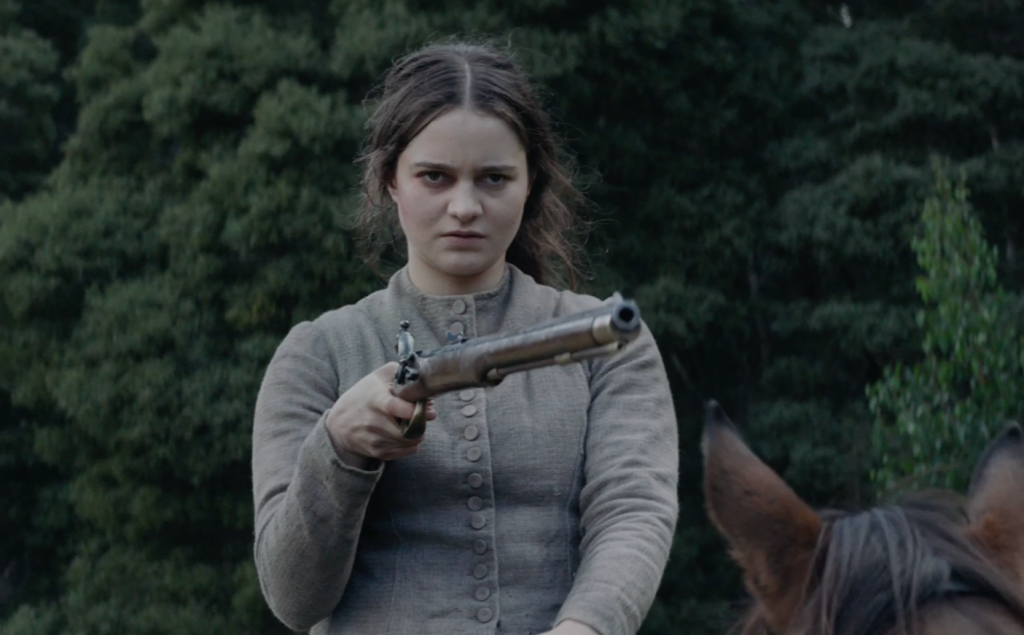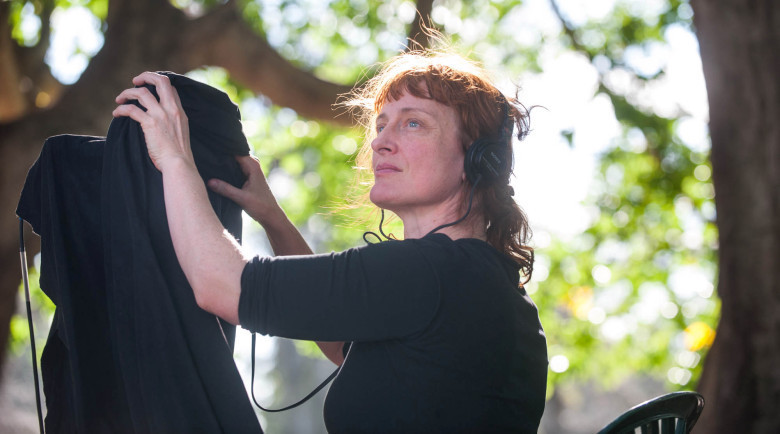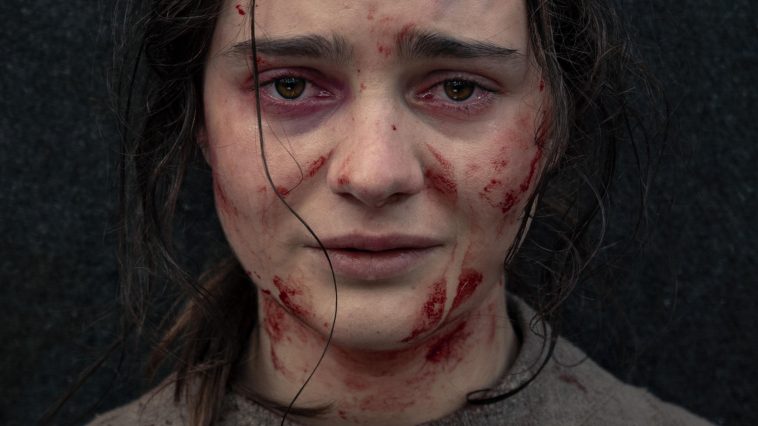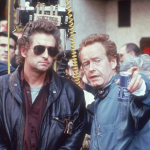Bestowed with the dubious honour of being the only female director to compete for the prestigious Golden Lion at the Venice Film Festival, Jennifer Kent’s The Nightingale was already at the centre of furious debate before a single frame was projected. Debate which was heightened in the context that the other 20 films in competition were all directed by men. In what some might see as a PR stunt to extinguish the uproar, the Biennale announced just days into the festival a commitment to the gender parity pledge as set up by French organisation 5050×2020. Once the dust settles on the peripheral politics, the film must stand or fall on its own merits.

Set in 1820 and the sprawling landscape of the Tasmanian wilderness, the British have established a penal colony. Former convict, now wife, mum and titular Nightingale, Clare (Aisling Franciosi) is committed to indentured servitude by Lieutenant Hawkins (Sam Claflin). Hawkins repeatedly rapes Clare in between demands for her to sing to him privately. He is crooked, corrupt and also hellbent on refusing to sign the contract that will sanction her leave. Clare’s lowly, but well-intended Irish husband, Goodwin (Ewen Leslie) is oblivious to the sexual crimes carried out against this betrothed, but is equally fed up over the protraction of what should be a formality. With patience exhausted, he confronts Hawkins. Matters don’t end well. In a bloody opening 30 minutes the tone is set for a trawl across the densely populated thickets of shrubbery and trees to trace the men responsible for the most heinous of crimes.

Kent’s historical drama is so pumped full of devil-may-care wanton sadism that even Michael Haneke might have averted his camera lens from some of the things aired here. The Babadook director’s viciously freewheelin’ The Nightingale shows a world where rape is plentiful and the bloodlust is next-level nasty. Gratuitously brutal and explicit, there are indelible images on show that test the limits of taste and offer a stern challenge to any persons of a sensitive disposition. There is no soundtrack aside from the human voice, the squawks of birds, the rustle of trees and snapped twigs trampled underfoot. Tension is squeezed from the menace of natural sounds. It is a move that eschews melodrama and tears at the nerves in an authentic, unmanipulated way. This is aided by electric performances from the small, but perfectly measured cast, who sell you their characters in a way that creeps under the skin and ensures plights and destinies are rooted for in a myriad of ways.

Reservation and criticisms could rightly be charged over the graphic nature of some of these scenes. It would be understandable, and might even prove problematic. If such qualms could be tossed to the side, however, the fact also remains that this audacious work is thrilling and with a subtext of substance. It is a film that addresses issues of racial hatred, ignorance and the uncultivated whims of opportunism. Human nature without the tramlines of consequence, law and order is depicted with the sort of pessimism as William Golding proposed in Lord of the Flies. It makes for depressing reading, but one hell of a riveting picture.
REVIEW – Dragged Across Concrete – Vaughn, Gibson and total rejection of the rules






Leave a Comment